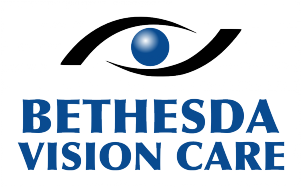
Maintaining optimal eye health is essential, yet many of us often overlook the need for regular eye check-ups. Basic vision screenings and visual acuity testing can detect common issues and determine whether you need glasses or contact lenses. However, they don't always catch everything. That's where comprehensive eye exams come into play.
Here at Bethesda Vision Care, we aim to help the community stay proactive about their eye health. But how do you know when it's time for a more thorough eye examination? Here are the top signs you need a comprehensive eye exam.
What Is a Comprehensive Eye Exam?
A comprehensive eye exam includes more than just a simple vision test. It consists of a series of tests to check the overall health of your eyes and vision. These exams can detect a wide range of eye conditions and vision problems in their early stages, allowing for timely treatment. Learn more about our comprehensive eye exams here.
Recognizing Urgent Signs for Eye Care
1. Blurred Vision
Blurred vision is one of the most common signs that you need a comprehensive eye exam. Blurring vision can indicate several issues, such as nearsightedness, farsightedness, or astigmatism. If your vision is not as clear as it used to be, it's time to book an eye appointment with us.
2. Frequent Headaches
Frequent headaches can indicate eye strain or other underlying eye problems. Do you find yourself experiencing headaches, especially after reading, using a computer, or watching TV? A comprehensive eye exam can help identify the root cause and provide relief.
3. Difficulty Seeing at Night
If you struggle with night vision or find it challenging to drive at night, it could indicate cataracts or other vision conditions such as diabetic retinopathy. You cannot ignore night blindness as it can significantly impact your safety and daily activities.
4. Eye Pain or Discomfort
Persistent eye pain, discomfort, or a sensation of pressure behind the eyes warrants immediate attention. These symptoms could indicate various issues, including glaucoma, which can lead to vision loss or infections. A comprehensive eye exam will help diagnose and treat these conditions promptly.
5. Double Vision
Experiencing double vision can be alarming and may be a symptom of severe health conditions such as corneal irregularities, cataracts, or issues with the muscles controlling eye movement. It's crucial to have a comprehensive eye exam to determine the cause and appropriate treatment.
6. Sensitivity to Light
Increased sensitivity to light can be more than just an annoyance. It could indicate an underlying condition such as uveitis or a corneal problem. If bright lights make you squint or cause discomfort, it's time to see an eye care professional.
7. Changes in Color Vision
Noticing changes in how you perceive colors, such as colors appearing faded or different, can be a sign of cataracts or other eye health issues. A comprehensive eye exam can help identify these changes and address the underlying causes.
8. Floaters and Flashes
Seeing floaters (small spots or shapes that drift through your field of vision) or flashes of light can be normal. Still, sudden onset or increased symptoms can indicate retinal issues, such as a tear or detachment. Immediate evaluation through a comprehensive eye exam is critical.
9. Family History of Eye Disease
If you have a family medical history of eye diseases such as glaucoma, macular degeneration, or diabetes, you are at a higher risk for developing these conditions. Regular comprehensive eye exams are not just for detection but also for prevention, allowing you to take proactive steps for your eye health.
Request Your Eye Appointment Today
If you’re experiencing any of these signs, don’t wait. Request a comprehensive eye exam at Bethesda Vision Care. Our expert eye doctors have extensive knowledge and experience. They are here to help you maintain your vision and eye health for years to come.
